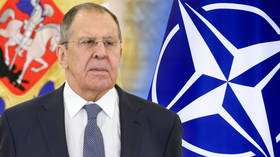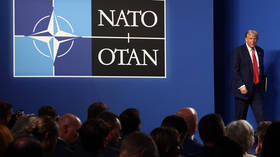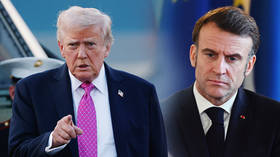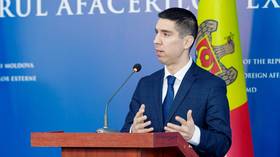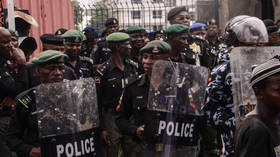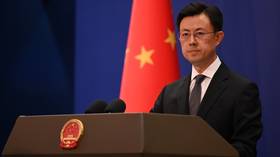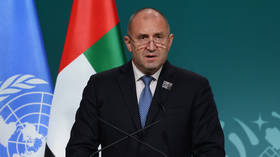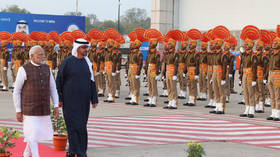A spy for a spy: mission accomplished
The spy scandal worthy of a Hollywood blockbuster is over with Moscow and Washington striking an exchange deal. The ten alleged Russian spies arrived in Russia on Friday following the Cold War-style swap in Vienna.
The ten alleged secret agents have been exchanged for four real American spies serving long-term sentences in Russian prisons.
Russia’s Foreign Intelligence Service and America’s CIA agreed to do so “on grounds of humanitarian character and principles of constructive partnership.”
All allegations of money laundering against alleged Russian agents were lifted.
On Sunday US attorney general Eric Holder told reporters that seven children of the deported Russians were also sent to Russia. Almost all of these children were born in the United States and they were allowed to choose their fate, the official said.
The American authorities agreed that the imprisonment of the 10 Russians would not do anything particularly good for the US, whereas liberating those who used to work for America can be positive – probably for the country’s image, all in all.
A New York judge ordered that the 10 accused, who have pleaded guilty to being Russian agents in America, were to be deported from the US.
Four individuals imprisoned on accusations of spying for foreign states in Russia have been pardoned by Russian President Dmitry Medvedev, announced the president’s press secretary, Natalia Timakova.
Set of spies
Russians handed over to the US:
Igor Sutyagin, arms control analyst, found guilty in 2004, 15 years for supplying information on nuclear arms to the US
Sergey Skripal, former colonel in the Russian military intelligence, jailed in 2006, 13 years for supplying information on Russian agents in Europe as well as arms tech specs to Great Britain
Aleksandr Zaporozhsky, former Russian Foreign Intelligence Service colonel, jailed in 2003 for treason, supplied information on Russian agents in America to the US
Gennady Vasilenko, a retired Russian intelligence officer who was serving time for illegal weapons possession.
They were pardoned after admitting to committing crimes against the Russian Federation.Spy exchange – history repeats itself
Talk of a potential spy swap between Russia and the US echoes the Cold War era, when such tactics were widely adopted and exchanges often took place in established and dramatic settings commonly depicted in spy fiction.
A common background would be an infamous bridge in Berlin, where a classic scene from a spy movie usually depicted an exchange as a process with a bunch of men with dark eyeglasses on despite the cloudy weather and collars turned up.
For most it is the intrinsic part of Cold War-era cinema, though for some it is their past.
Vladimir Bukowsky was one of the most prominent dissident figures in the Soviet Union. He spent a total of 12 years in prison, and was swapped for Chilean communist leader Louis Corvalan in 1976. This was the first time that two countries exchanged not spies but political prisoners.
“There was a kind of confusing mixed emotions I experienced, but the strongest one was feeling how tired I am,” recalled Bukowsky. “Because while these things are going on, you keep yourself in shape, you do not allow yourself to relax, you mobilize. But once it is all over, you relax and suddenly all this tiredness reaches you and catches up with you, so I just felt completely exhausted.”
Until then, superpowers often dealt in people: a spy for a spy was an idea of fair exchange, when one valuable agent got caught red-handed in an enemy land.
The exchanges of spies and political prisoners often took place on bridges, tucked away somewhere in remote areas. The Glienicker Bruecke in Germany was used for this purpose 150 times. The first of those was in 1962, when the Soviet Union swapped American pilot Francis Powers for one of its top agents, Rudolf Abel.
Powers found himself in a mayday situation in 1960. He was shot down during a reconnaissance mission over the Urals region of the Soviet Union.
Russian leader Nikita Khruschev announced on that day that “At 5:36 in the morning Moscow time an American plane crossed our border and went on with its flight deeper into Soviet land. The government declared that the aggressor knew what he was doing as he trespassed on someone else’s territory. This is why it was necessary to act and shoot down the plane.”
The United States rushed to make a statement that Powers was on a meteorological mission, but the Soviet Union presented evidence to the contrary: plane debris and the pilot's statement admitting he had been spying.
Powers was sentenced to 10 years in a Soviet prison, but served only a year and a half of his sentence.
When Powers returned to the United States, he got far from a hero’s welcome.
The business of swapping agents and political prisoners continued into the early 1980s, until the end of the Cold War. But with a change of mood in politics, the significance of spy scandals started to lose its luster.
“I think in the Soviet times this was a top-secret kind of thing, and only after it happened people found out about their country’s heroes. What kind of effect it would have today is difficult to say, because I haven’t heard of such an incident for the last decade,” admitted Russian State Duma Deputy Valery Draganov. “Moreover, I think such exchanges are not indicative of any accomplishment or agreement. I wouldn’t make a big deal of spying scandals in the framework of national interests.”
With the end of the Cold War and the reset in relations between Moscow and Washington, such exchanges seemed to have been resigned to history… but the stories of men and women who come in from the cold continue to intrigue.


